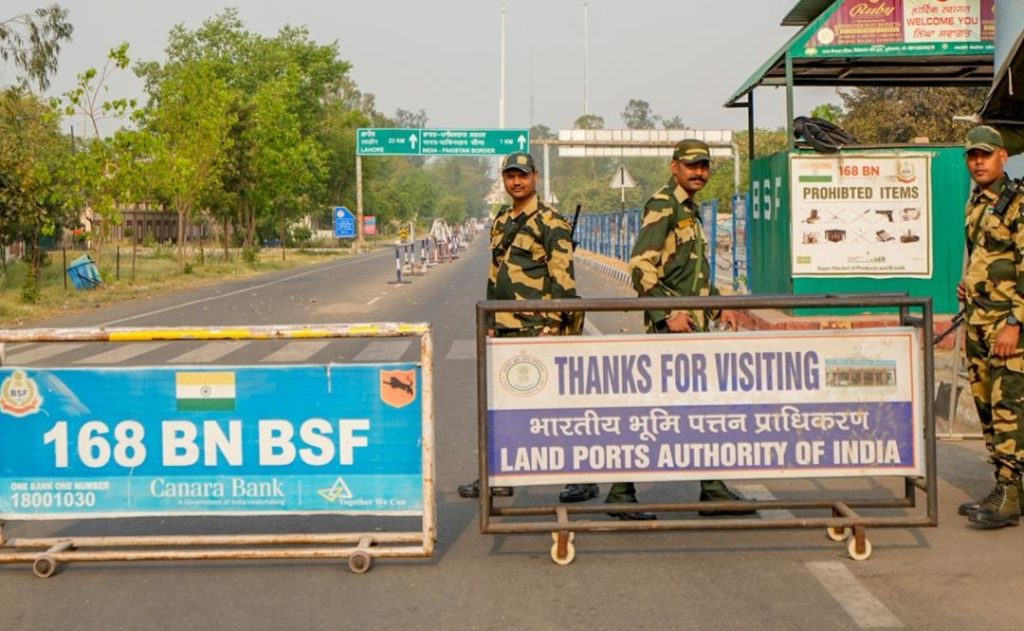
Attari-Wagah Border Between India and Pakistan Completely Closed
In a significant development, the Attari-Wagah border between India and Pakistan was completely closed, effective Thursday, reported PTI. The move comes in the wake of heightened tensions between the two countries following the Pahalgam terror attack, which claimed the lives of 26 tourists.
The Attari-Wagah border, located on the outskirts of Amritsar in Punjab, is one of the most symbolic and busiest border crossings between India and Pakistan. The decision to shut the border has sent shockwaves across the region, with implications for trade, tourism, and diplomatic relations between the two countries.
According to reports, no person from either side was allowed to cross the border on Thursday, marking a rare instance of the border being completely closed. The closure is seen as a significant escalation in tensions between India and Pakistan, which have been simmering for several years.
The decision to shut the border was reportedly taken by Pakistan in response to India’s decision to deport Pakistani nationals who were arrested for various crimes in India. The mass deportations, which began earlier this week, were seen as a retaliatory move by India following the Pahalgam terror attack.
The Pahalgam attack, which occurred on October 8, was carried out by terrorists believed to be affiliated with the Jaish-e-Mohammed (JeM) militant group. The attack, which targeted a bus carrying Hindu pilgrims, was one of the deadliest terrorist strikes in recent years.
The closure of the Attari-Wagah border has significant implications for trade and commerce between India and Pakistan. The border is a crucial crossing point for goods and services, with millions of dollars worth of trade passing through it every year.
Tourists and travelers planning to visit Pakistan or India via the Attari-Wagah border are also likely to be affected by the closure. The border is a popular tourist destination, with visitors from around the world flocking to witness the elaborate flag-lowering ceremony that takes place every evening.
The closure of the border is also seen as a diplomatic setback for both countries. The Attari-Wagah border is a symbol of the complex and often tense relations between India and Pakistan. The border has been the site of numerous protests, demonstrations, and clashes in the past, and its closure is likely to have far-reaching consequences for regional stability.
In a statement, the Indian government said that it had taken the decision to deport Pakistani nationals who were arrested for various crimes in India, including terrorism-related offenses. The government claimed that the deportations were necessary to protect national security and prevent the spread of terrorism.
Pakistan, on the other hand, has accused India of violating human rights and international law by deporting its nationals. Pakistan has demanded that India provide proof of the crimes allegedly committed by the deported individuals and has threatened to take legal action against India if the deportations are not reversed.
The closure of the Attari-Wagah border is a significant escalation in tensions between India and Pakistan, and it is unclear when the border will be reopened. The situation is likely to remain tense in the coming days, with both countries maintaining a hardline stance on the issue.
Source:






